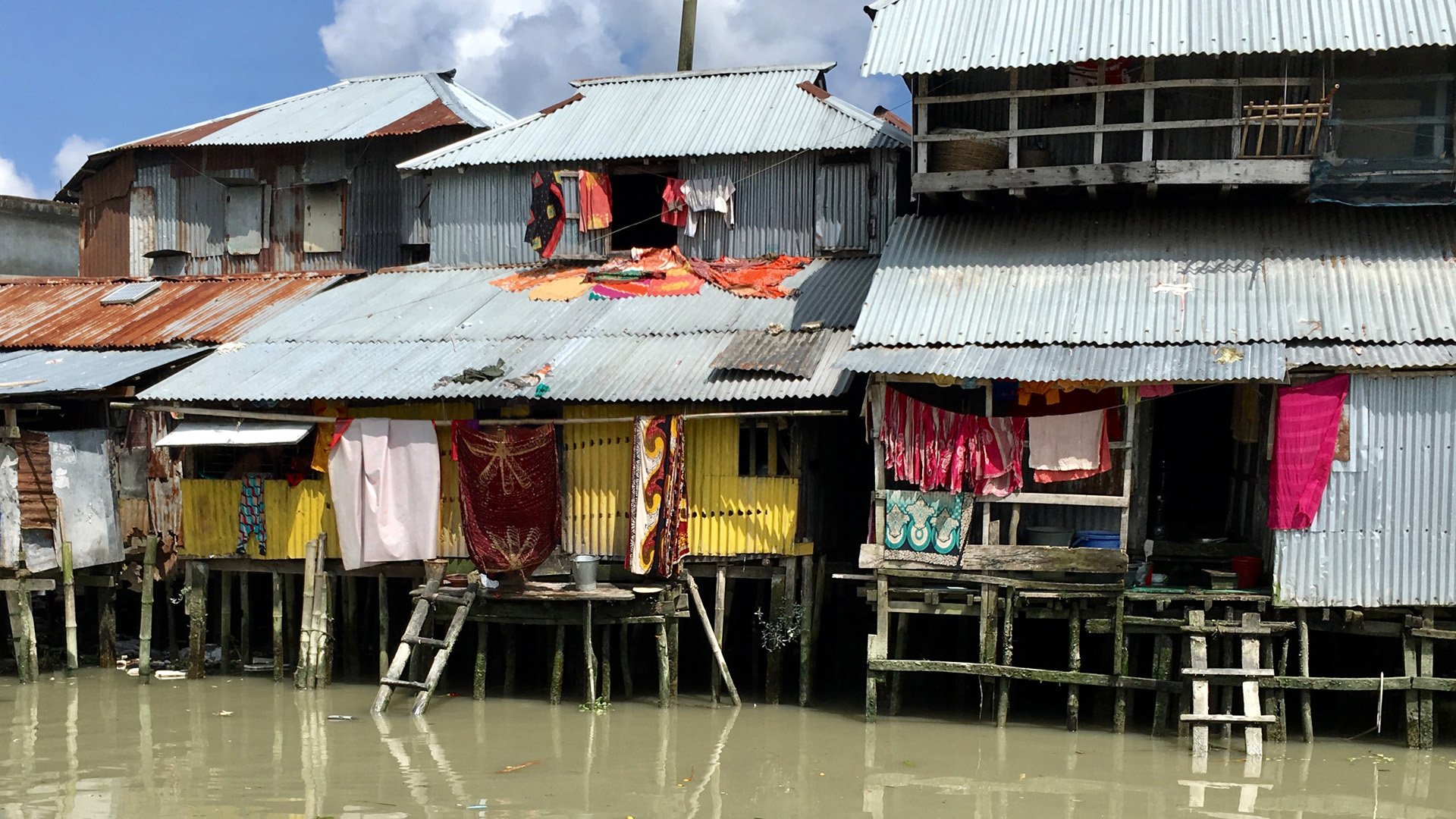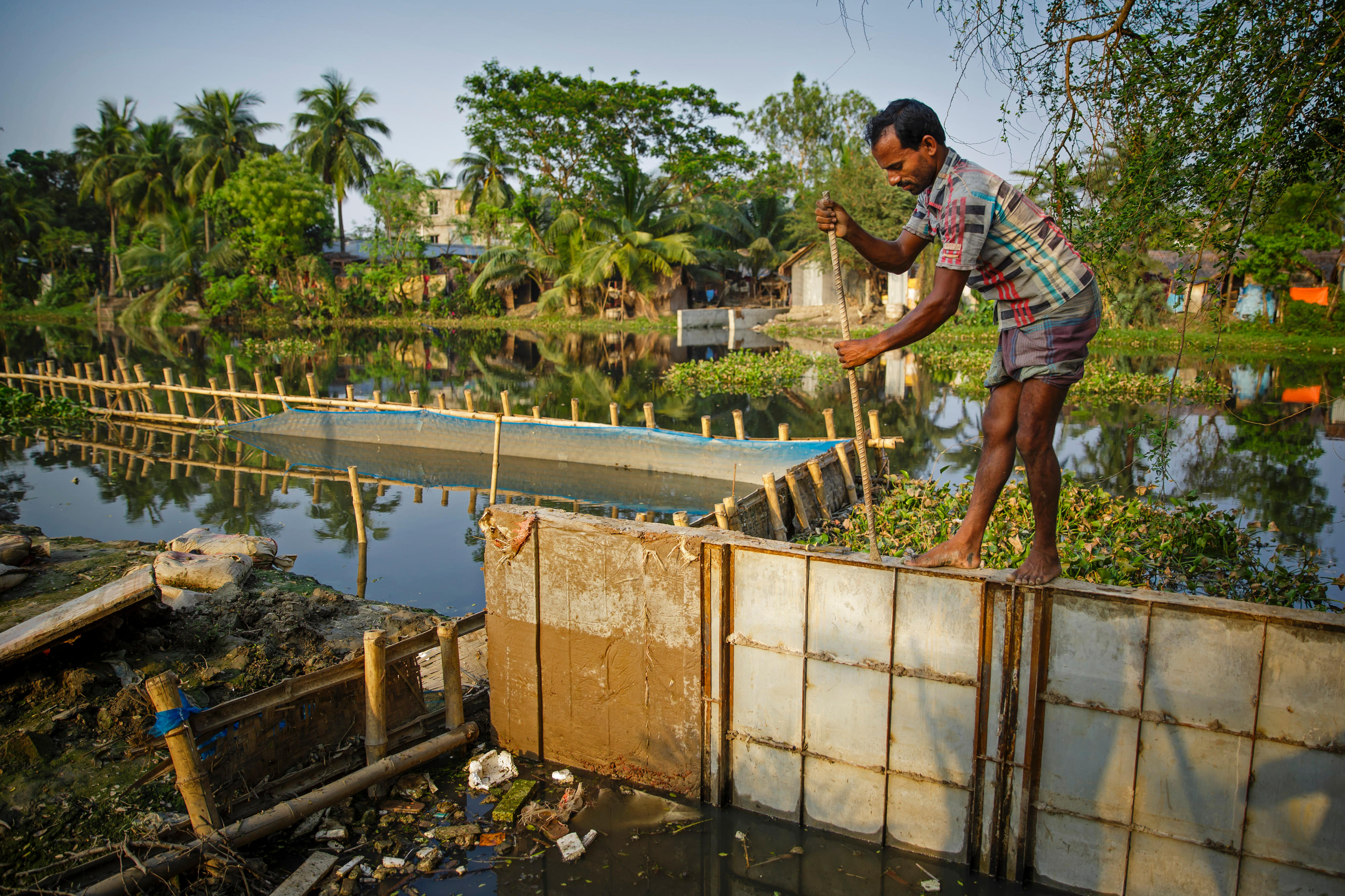Flooding in the city of Barisal in Bangladesh
Copyright© KfW
Bangladesh: Cooperation in action Adapting cities to climate change
German development cooperation activities are supporting the efforts of cities in Bangladesh to adapt to climate change with a view to reducing the number of people who are vulnerable to its impacts.
The example of Khulna
The city, which is located in the south-west part of the country, is surrounded by the Bhairab and Rupsha rivers and lies just two to four metres above sea level. Because of its location, the city is prone to severe flooding during the monsoon season. This is a difficult situation for the 1.5 million people living in Khulna, 40 per cent of whom are living in poverty. On the roads, 80 per cent of the traffic is non-motorised vehicles like rickshaws. However, because even these means of transport are often too expensive for poor people, many of them go everywhere on foot. Walking is risky in Bangladesh as there are usually no pavements or proper footpaths. At the same time, the roads in Bangladesh often serve as dams, protecting towns and cities from floods.
Workers building a new dam road in Khulna
With support from KfW Development Bank and the Asian Development Bank, 10 kilometres of access roads have been built in the poorer parts of the city, so that about 200,000 people now have permanent connections to the transport network. Furthermore, the roads were built with a system of drainage ditches so that, during the monsoon season, districts within the city are no longer left under water for weeks. The danger of flooding is now significantly reduced and the quality of life for the local people has been much improved. One local resident reported that the roads used to be flooded for up to six months of the year, while the new access roads have not yet been flooded once. The roads have also given people access to new economic opportunities.
Building on these positive experiences, KfW Development Bank is currently engaged, on behalf of the BMZ, in planning further cooperation with the city administration of Khulna. Up to 30 million euros is available for these activities. To this end, analyses are being carried out to find out how urban infrastructure can be better adapted to climate change whilst simultaneously reaching people who are poor and particularly vulnerable.
The example of Barisal
Barisal, the second-biggest coastal city in Bangladesh, has also received assistance under German development cooperation to help it make adaptations to deal with the consequences of climate change. Barisal has been growing rapidly over the last few decades. Informal settlements have grown with the city: it is estimated that 110,000 people now live in slums in Barisal. In order to create more space to live, ponds and canals in the city have been filled in. This has serious consequences in coastal areas in Bangladesh because it means a reduction in drainage capacities. During the monsoon period or when storms cause flooding, the informal settlements of Barisal are the first parts of the city to be flooded. Flooding caused by cyclones or damage from high winds are an additional danger that the population must face.
Construction of a bank stabilisation on the banks of the Mayur River in the city of Khulna in south-western Bangladesh
Hence, measures for climate-smart urban development have been identified, taking the poor population into particular account. For example, with German support, the network of drains is being expanded and the capacity of the storm water drainage systems is being increased. Drainage and flood protection systems can reduce the enormity of the climate-induced problems Barisal is facing and shorten the length of the flooding to a few days. Buildings and important roads in the slums are being raised up. This means that roads and schools can remain in use for far longer and parts of the city with weak infrastructure are in less danger. This then means that economic cycles are disrupted less and the poor population is better able to cope overall with the impacts of climate change and people are better able to protect themselves from its consequences.
As at: 02/04/2024



